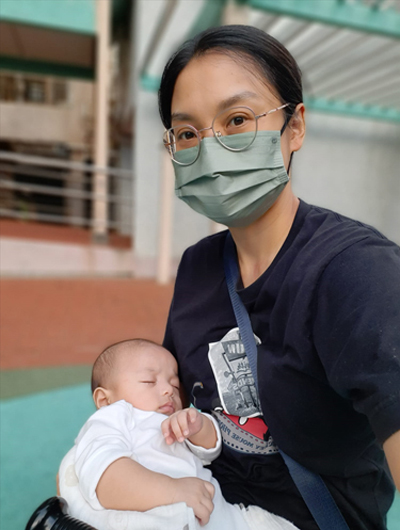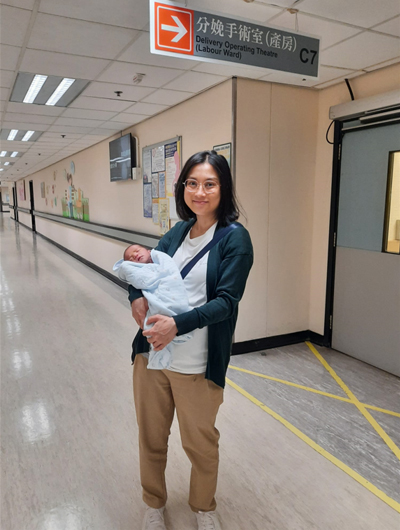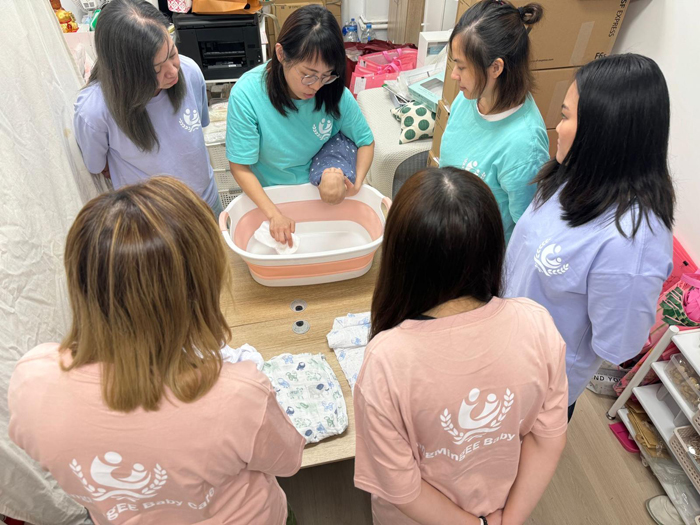Powerful Support to New Moms: All About Confinement Nannies
One of the biggest challenges for new parents is learning how to care for their newborns while helping mothers recover physically and emotionally, and adjusting to their new roles. This can often be overwhelming and exhausting. To navigate this demanding time, many new parents have turned to confinement nannies for professional postpartum support, assisting with newborn care and daily meal preparation.
But what physical and emotional changes do postpartum mothers experience, and how can they adjust during this critical period? We invited new mother Emma and confinement nanny Jessica Cheung to share their personal experiences and professional advice.
A Major Shift in Role and Emotions for the New Mom
Emma, a first-time mother, gave birth via C-section and chose to breastfeed. While her physical recovery was swift, she often felt nervous and uneasy. She shared, “Welcoming our first child was a profound joy, but it also brought immense challenges. Everything—from the daily meals and baby gear to regular health check-ups—was unfamiliar. I easily became anxious and tense after the baby was born. I needed a professional who was not only attentive and patient in caring for the baby but also understood my emotions and needs. That’s why we hired a confinement nanny. With the support of my husband, family, and the confinement nanny, I was able to better adjust and feel less anxious. When my husband left for work in the morning, the confinement nanny stepped in to care for the baby, allowing me to rest. It felt like seeing light at the end of a sleepless tunnel.”

New mother Emma believes that both physical recovery and adapting to motherhood are important after childbirth.

Emma needed a professional who was attentive and patient in caring for the baby, and understood her emotions and needs.
The Postpartum Diet: More Than Just Nutrition
Emma highlighted the importance of the postpartum diet for facilitating breastfeeding and maintaining physical and mental health. "As I was breastfeeding, the confinement nanny prepared nourishing confinement meals and stir-fried rice tea. She also made special soups daily to boost milk supply, such as lotus root and pork knuckle soup with peanut, as well as papaya fish soup. In addition, meals that looked and tasted good really lifted my mood and supported both my physical and mental health."
Confinement nanny Jessica Cheung added, “Pregnancy and childbirth drastically impact a mother’s body. We provide tailored care plans based on each mother’s specific needs.” She explained that in the early postpartum stage, meals should support uterine recovery. The middle stage emphasises on replenishing blood and qi, and the final stage supports overall nourishment. Jessica recommends foods rich in protein, vitamins and iron, such as fish soup, chicken and red dates, while avoiding cold, spicy or irritating foods.

New mother Emma emphasises the importance of the postpartum diet for facilitating breastfeeding and maintaining physical and mental health.
A “Recharging Station” for New Parents
New moms often feel fatigued and irritable in the early postpartum stage, with their energy gradually improving as their physical condition improves. That said, hormonal shifts can cause significant emotional fluctuations, sometimes overlooked even by the mothers themselves or others. Emma shared that her confinement nanny helped her family establish a regular schedule, including preparing meals, washing milk bottles, bathing the baby, creating a structured daily routine. "I was lucky that my baby was relatively easy to care for, and my husband is an incredible partner who fully supports me. Still, adapting to motherhood takes time. The support from my family and professionals means a lot to me. My confinement nanny talked with me every day and shared her experiences, which helped lighten my mental load. With family and professionals walking beside me, parenting becomes a joyful journey.”

The confinement nanny carefully observes the new mother’s changes and helps her understand that becoming a new mother takes time to adjust to. When necessary, she can seek support from family members and professionals.
Caring for a newborn includes countless daily tasks—preparing and warming milk, feeding breast milk, bathing, umbilical cord care, and changing diapers. Besides assisting with these tasks, the confinement nanny guides new parents and their families in mastering the skills of newborn care.
Over time, Emma realised that supporting her own well-being, and that of her husband, was just as vital to make parenting enjoyable. “In the postpartum period, people focus mainly on the mother, but the father is just as important. My husband and I communicated openly and scheduled ‘Me Time’ and sufficient rest for ourselves. He helped ease my worries by taking charge of the hygiene of the baby products like bottles and clothing. He constantly reassured and encouraged me, which gave me confidence and peace of mind.”